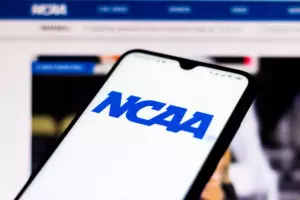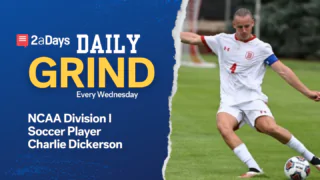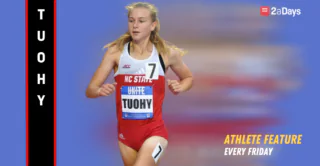You are here because you have what it takes to take your talents to the next level. You have the grades, the athleticism, and determination to play at the college level. Not so fast! Becoming a collegiate athlete is both an exhilarating and rewarding experience, but there's much more to the process than just the desire to play and signing day.
RECRUITING
To be considered a “recruited prospective student-athlete,” athletes must be in contact with a college coach or representative about participating in that college's athletic program.
To begin the process, start by making a list of colleges that you are interested in. Get in contact with those coaches by emailing them and professionally introducing yourself.
“You aren't a recruit until a coach knows about you.” – Pat Dolan, St. Cloud State Baseball.
CONTRACT
A contract is defined as a written or spoken form of agreement. In the NCAA, athletes committing to a Division I or II school sign a contract called a National Letter of Intent (NLI). This is a binding contract between you and the college you sign with that guarantees your athletic scholarship for one academic year.
Once you sign your NLI, your recruiting process is considered over because colleges are not allowed to recruit student-athletes who have already signed their letters.
EVALUATION PERIOD
The evaluation period is known as the period of time when a college coach is not allowed to have any face-to-face contact with their prospective student-athlete. Still, they are allowed to watch you compete at your high school or club games and call or email you and your parents.
“For a guy to get our attention, he really needs to be dominating at the high school level. It should be obvious. When we turn on that game film, my wife should be able to pick out who we are watching! If we can't tell who we are watching after a few minutes, we're probably watching the wrong video.” — Jeff Scott, Clemson Football.
CONTACT PERIOD
The main difference between the evaluation period and the contact period is that during the contact period, coaches are now allowed to have face-to-face contact with the prospective student-athlete and their parents.
Visit
Click here to see official dates for the contact period for each sport and each division.
QUIET PERIOD
During a quiet period, college coaches can only have face-to-face contact with their prospective student-athletes while on the specific college campus. They are still allowed to call or email, but they are no longer allowed to meet in person or watch you play unless the meeting or competition occurs on the college campus.
DEAD PERIOD
The dead period is referred to as the period of time when college coaches are not allowed to have any face-to-face contact with their prospective student-athlete whatsoever. During this time, the only contact that is allowed is over the phone or through email.
OFFICIAL VISIT
Definition: A visit financed in whole or in part by an institution.
Normally, a prospective student-athlete will stay overnight at a college with a current collegiate team member during an official visit. This is the only type of visit where the college is allowed to pay for the prospect.
The college allowance is allowed to be used for the prospect's meals, lodging, and reasonable entertainment such as a movie or a home sporting event. This money is not to be used for anything tangible during the prospect's official visit.
You're only allowed FIVE official visits to any Division I or Division II schools, and you're only allowed to “officially visit” each school ONCE. Regarding a Division III or an NAIA level school, you're allowed as many official visits as you'd like but are still only allowed to “officially visit” each school ONCE.
UNOFFICIAL VISIT
Definition: A visit financed entirely by the prospect.
The main difference between an official and unofficial visit is that the unofficial visit is paid for by the prospect or his/her parents and doesn't include any of the benefits of being on an official visit.
RECRUITING CALENDARS
Recruiting calendars is a tool used by the NCAA to ensure everyone has a smooth and resourceful recruiting process. They list all of the dates and rules in the same place so that prospective student-athletes and their parents can be informed.
The NCAA holds specific rules that deem a player either eligible or ineligible to play at the collegiate level.
To be eligible to play Division I or II, the NCAA takes into account your GPA and test (SAT/ACT) scores.
Each college also has academic requirements that you need to follow that may differ from those of the NCAA.
* Originally published on December 4, 2017, by Taylor Patrizi







